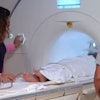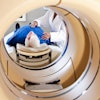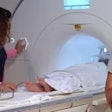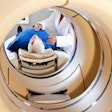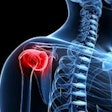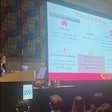
RSNA 2017 might be remembered as the annual meeting when women's imaging took a quantum leap forward with the burgeoning utilization of artificial intelligence (AI), machine learning, deep learning, and computer-aided detection/diagnosis (CAD/CADx).
During the week, dozens of scientific sessions, refresher courses, educational exhibits, and poster discussions will explore how these advanced technologies will benefit breast imaging and have an expanding influence on a number of levels and a wide range of clinical applications.
AI and its related technological counterparts will help clinicians advance the capabilities of digital mammography, ultrasound, and MRI to improve the detection and diagnosis of breast cancer, supplement biopsies, or avoid invasive procedures altogether.
Researchers will show how CAD/CADx increases the ability of radiologists to identify and characterize lesions with accuracy approaching 100%. When coupled with imaging modalities, deep learning and CAD enhances specificity, accuracy, and positive predictive value for various abnormalities.
With bolstered computing power, researchers are combining routine clinical data and natural language processing to create very large datasets for deep learning to perform multiple tasks in much less time than it would a team of radiologists and clinicians. In addition, deep learning can produce super-high-resolution mammography images, which has the potential to replace magnification mammography without any additional dose exposure for patients.
Below is a sampling of what is available for your introduction to and education on the current state of women's imaging informatics and what the future holds with the further adoption of AI technologies.
And, to view a complete listing of abstracts for the RSNA 2017 scientific and educational program, click here.

